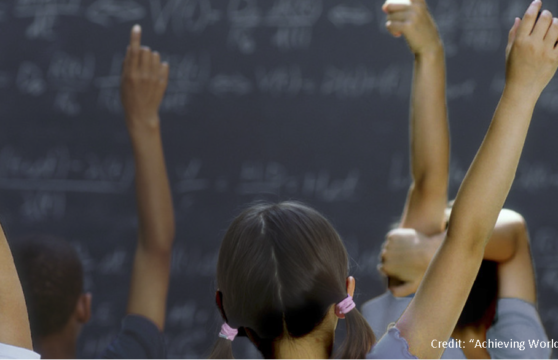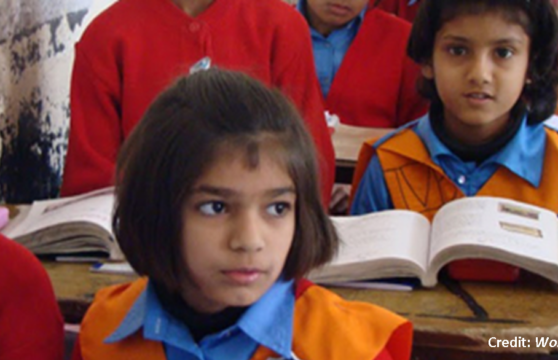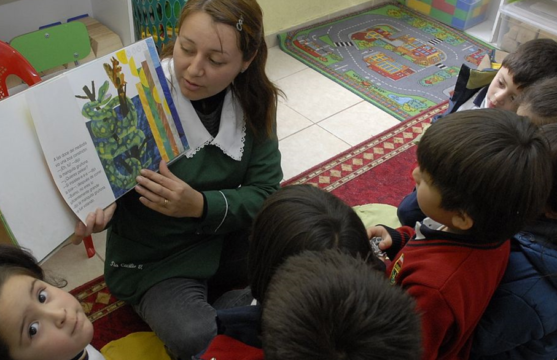
Achieving World Class Education in Brazil
An analysis of Brazilian education and the four recommendations offered to better compete with OECD systems by 2021.
This post is also available in: Spanish
One of the main obstacles to Ecuador´s development and progress is its geographic, social, political and economic fragmentation. High levels of fragmentation have reduced the possibility of implementing reforms that are key for Ecuador´s development. There is, however, an exception. The Ten-year Education Plan (PDE by its acronym in Spanish) which included eight education policies with long-term goals, was approved in a referendum in 2006 and has been implemented in collaboration with international donors, universities and civil society organizations, among other organizations.
The Ten-year Education Plan was promoted by social movements when the first National Agreement “Educación Siglo XXI” was established in April 1992. A second and third agreement followed in June 1996 and November 2004, that eventually led to a Ten-year Education Plan with clear objectives to be achieved in 2015. The eight education policies included in the PDE are the following:
Since its approval, the PDE has made it possible to promote constitutional reforms as well as the creation of institutions and the implementation of programs and projects needed to achieve the goals defined in the Plan such as the education evaluation system. The PDE has also generated a space for public institutions and non-governmental organizations to collaborate.
Following the principles incorporated in the Declaration of Paris, the “Programa de Apoyo al Plan Decenal de Educación (PAPDE) implemented by the European Union in Ecuador opened a call to invite Civil Society Organizations (CSO) to develop a program to accompany the implementation of the PDE from a non-governmental perspective.
The proposal presented by Grupo FARO, an Ecuadorian think-and-do tank, in alliance with universities and CSO with experience in education, was selected by a committee composed of representatives of the European Union and the Minister of Education and included the following objectives:
The program developed by Grupo FARO and its allies was called “Educiudadanía” and was based on the principle that the challenges faced by the Ecuadorian Education system cannot be solved only by the State. For this reason, the goals of the PDE included the participation of teachers and public servants from the Ministry of Education, but also required the participation of parents and students themselves as well as universities and the private sector as future beneficiaries of of the quality and equity of the education system.
From the beginning of the initiative, and in order to facilitate interaction, information flow and collaboration among actors, “Educiudadanía” was set up under a three-way model in which the State, represented by the Ministry of Education, the international cooperating entity, the European Union, and civil society, through the initiative itself and the organizations members of it. This model proposed regular meetings of the tripartite commission in order to delineate and solve key aspects of the initiative, address difficulties with information gathering and reporting, and discuss critical barriers to the implementation of the PDE. The figure below presents the model of collaboration established under the initiative.
Figure 1. Educiudadanía’s three-way model of collaboration.
Source: Bellettini, 2010
During its two phase implementation “Educiudadanía” has generated a diversity of information products, data analyses and interactive tools to facilitate citizens’ follow-up of the PDE. It has also implemented capacity building workshops and courses, hosted citizen forums and coordinated local observatories and citizen networks.
The tripartite model has allowed for a more fluid dialogue and collaboration between civil society, the donor and the Ministry of Education. Moreover, this interaction has strengthened the capacities and institutionality of the three actors by establishing a sustained relationship based in the generation, discussion and analysis of information and evidence with the involvement, oversight and feedback of civil society. “Educiudadanía” has also been a bridge connecting local realities to the macro level of policies and in that way, connecting the State with the local reality in a continuous feedback loop.
Ecuador´s Ten-year Education Plan has provided both change and continuity. Change because it facilitated several innovative reforms to achieve its goals. However, the PDE has been an enormous contribution of stability in a country that, due to its high levels of fragmentation, had been unable to generate consensus that might lead to the implementation of long-term policies.
In a recent study, Edwards and García (2014) concluded that there is no evidence that including the right to education in the constitution is associated with education quality. More than legal protection, education policies need to have a social basis. The experience of Educiudadanía shows that participation of non-governmental actors can be key to increase the continuity and legitimacy of public policies. The participation of a coalition of think tanks, universities and civil society organizations in a commission also integrated by an international donor and the Ministry of Education created a permanent space for independent monitoring coming from citizen groups both at the national and local levels. Moreover, it made it possible to disaggregate information regarding the results of each policy at the local level, which proved to be vital for engaging citizens in follow-up efforts and observatories.
Another factor that made a difference was the approval of the PDE in a referendum. Despite the fact that several ministers and different governments were in office during the PDE´s implementation, none of them attempted to modify or discontinue the PDE. It also reduced the possibility that actors such as the teachers´ union and political parties exert the informal veto power that traditionally had paralyzed the Ministry of Education to implement policy reforms in areas related to teacher selection process and evaluation, among others.
The experience of Ecuador´s Ten-year Education Plan shows that policy continuity occurs within a broad public sphere that includes not only the State, but also the private sector and civil society organizations. The sustaining of policies requires a combination of a top-down approach (i.e. legislation and political commitment) as well as a bottom-up approach (i.e. participation of grassroots organizations and citizens).
Not a single actor has all the resources, ideas and legitimacy to overcome fragmentation and sustain policies in the long run. Collaboration and shared long-term vision are key in promoting a more innovative, inclusive and effective education system with the capacity of creating opportunities for everyone in the 21st century.
The authors work as Executive Director and Research Director at Grupo FARO, an Ecuadorian think-and-do tank that generates evidence to inform policies and inspire practices to build a more prosperous, innovative, sustainable and democratic society.
This post is a summary of a chapter in the forthcoming book Education in South America edited by Simon Schwartzman that will be published by Bloomsbury in 2015.
An analysis of Brazilian education and the four recommendations offered to better compete with OECD systems by 2021.
Why Pakistan represents “the biggest education reform challenge” and 12 lessons that are applicable to reform efforts around the globe.
An Interview with Manuel A. Alvarez Trongé and Alejandro J. Ganimian on the quality of education in Argentina.

